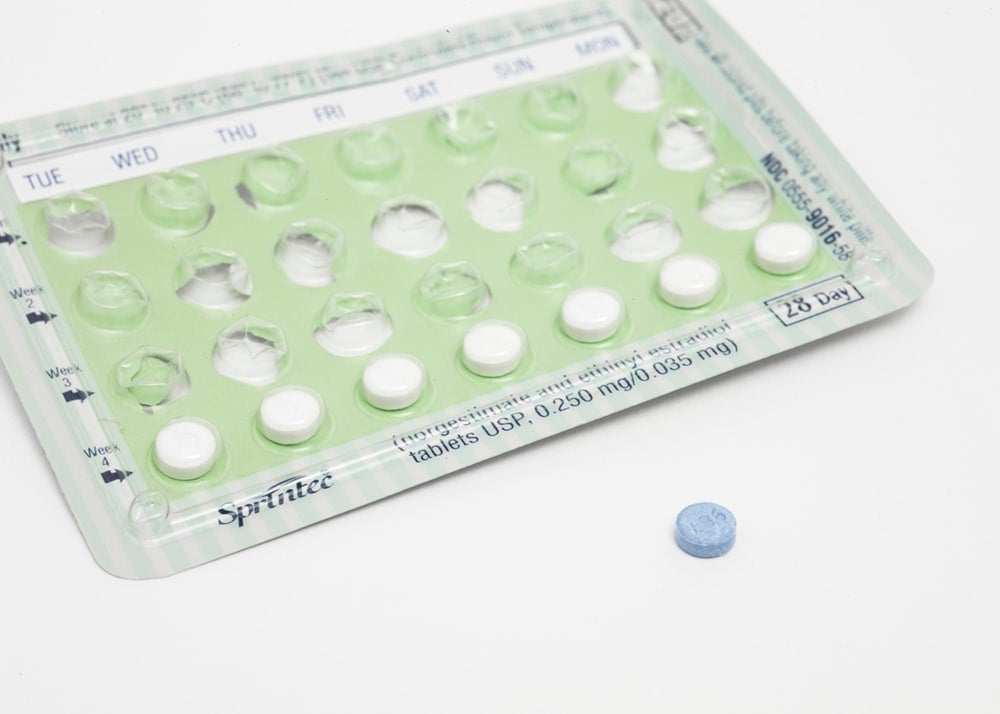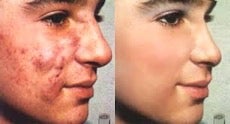Acne is one of the most common issues that adolescents face. Suffering from acne can have a dramatic effect on one’s self esteem and body image. Severe acne can last for a prolonged period of time, result in scarring, and may not be effectively treated by over-the-counter treatments or treatments prescribed by a dermatologist. Isotretinoin, also referred to by its trade name, Accutane, is a retinoid (Vitamin A derivative) used as a last resort treatment for nodular or cystic acne.1 Isotretinoin is also labeled under names such as Absorica, Claravis, Myorisan, Sotret, and Zenatane.2 Isotretinoin has an 80% success rate among users, with more than half of users never having to manage their acne again.1 Isotretinoin works from the inside out by reducing sebum production.3 Most other acne treatments are less effective at reducing sebum production compared to isotretinoin.

Table of Contents
Things to Consider
When considering taking a medication, there are important aspects to consider before obtaining a prescription. Some of these include side effects, drug interactions, length of treatment, and the processes involved in receiving and using the medication correctly. Specific to isotretinoin, women must take specific action in order to use the medication; this will be discussed in-depth further on. The regulations surrounding isotretinoin make it difficult to obtain compared to other medications.
Treatment Duration and Instructions
A round of isotretinoin treatment lasts between four to six months, with patients only receiving a month’s worth of medication at a time.2 If acne does not respond to the treatment in that time period, additional rounds may be prescribed. It is typical for acne to get worse in the initial stages of isotretinoin treatment before it starts improving. Isotretinoin is taken orally twice a day, with food and water.2 Dosing is determined by your doctor and is based off body weight; dosing may be adjusted by your doctor as needed.2 Do not donate blood while taking isotretinoin and for one month after finishing treatment.4 Since isotretinoin travels through the bloodstream, donated blood carrying isotretinoin could have adverse effects on the person receiving the donated blood.
Side Effects
There are a number of side effects associated with isotretinoin, ranging from common to rare. Some of the side effects that most users will experience listed below:
- Chapped lips
- Dry and itchy skin
- Nosebleeds
- Irritation to the eyes and eyelids
- Joint and muscle pain1
Most of these symptoms can be easily treated and do not require discontinuation of isotretinoin. Although these side effects may be a nuisance, obtaining clear skin is worth living through these side effects for most people. There are, however, some side effects that are more severe and should be discussed with a doctor if you experience them. Some of these symptoms include the following:
- Headaches
- Temporary hair thinning
- Decreased night vision
- Rash
- Rectal bleeding
- Yellowing of the eyes or skin
- Depression or thoughts of suicide1
Although seen in few cases, depression and suicidal thoughts have been linked to isotretinoin use. If you have a history of depression,talk with your doctor about your ability to use isotretinoin. If you do experience depressive symptoms and suicidal thoughts while on isotretinoin, your doctor will most likely discontinue the prescription. Isotretinoin will also cause an increase in liver enzymes. Although liver enzyme abnormalities are usually asymptomatic, in rare cases there have been reports of acute liver injury, and even cirrhosis of the liver.5 For this reason, monthly blood tests are taken to monitor liver enzyme levels and make sure they stay within normal ranges. It is also important to abstain from consuming alcohol while taking isotretinoin due to the added stress on the liver. While taking any kind of medication, understand the side effects so that you may seek medical attention when necessary, and discuss with your doctor if this medication is right for you.

Isotretinoin Use for Females
In order for females to obtain their medication, they must register with a pregnancy prevention program called iPledge.6 Females who are pregnant or who think they may become pregnant should not take isotretinoin. There is a high risk of heart, brain, and face deformities in a developing fetus in females who take isotretinoin while pregnant. If a female becomes pregnant while on isotretinoin, she should stop use immediately and consult a doctor. Due to the records of birth defects caused by isotretinoin, the iPledge program was developed to raise awareness and increase the regulation around the drug, only allowing registered pharmacies to dispense isotretinoin.6

Because of the birth defects related to isotretinoin use in pregnant females, females are required to use two forms of effective birth control while on isotretinoin, as well as one month before and one month after isotretinoin treatment.6 After a female has chosen the two forms of birth control, she must consistently use them for one month andreceive two negative pregnancy tests before staring isotretinoin therapy. One month after completing isotretinoin therapy, a woman must receive another final pregnancy test. Acceptable forms of primary contraception are the hormonal implant, vasectomy of her partner, hormonal IUD, tubal sterilization, non-hormonal IUD (copper T), hormonal injections, hormonal patch, hormonal vaginal ring, or hormonal combination oral contraceptives.4 Note that progesterone-only “mini-pills” and the IUD Progesterone T are not acceptable forms of primary contraception. Acceptable forms of secondary contraception are the male latex condoms with or without spermicides, spermicides alone, the cervical cap with spermicide, the diaphragm with spermicides, or the vaginal sponge.4 Note that female condoms are not an acceptable form of secondary contraception through the iPledge program. Additionally, natural family planning such as the rhythm method, fertility awareness, or the withdrawal method are not acceptable forms of birth control for use of Isotretinoin. Perfect-use and typical-use failure rates are too high for the unapproved contraceptive methods.4

Throughout the treatment, females must take monthly pregnancy tests in an approved lab and fill out a questionnaire to ensure that they are using their two birth control methods as per the regulations of the iPledge agreement. The negative pregnancy test result and questionnaire both need to be added to the iPledge system before a female can have access to her next round of medication. A recent study conducted in 2017 looked at possible effects of isotretinoin use on female fertility. Although no concrete answers were found, this specific study asserts that isotretinoin has a negative effect on ovarian reserves, but that these effects diminish over time after treatment has finished.7 Even though using two methods of birth control while on isotretinoin is only limited to the treatment window, always practice safe sex by using birth control, including barrier methods, like condoms, that protect against sexually transmitted infections. Because female have the potential to become pregnant, their standards for isotretinoin use are much stricter than men. If a female is considering taking isotretinoin, she should understand the risks associated with becoming pregnant, and also follow the guidelines established by the iPledge program.

Isotretinoin Use for Men
Even though men cannot get pregnant, they also need to register with the iPledge program and have a complete understanding of the birth defects associated with isotretinoin before receiving their monthly dose. While taking isotretinoin, men may experience erectile dysfunction and decreased libido.8 Although there have been very few reports of this occurring, men should be fully aware of the potential effect isotretinoin may have on their sex life.
Concluding Remarks
As stated in the beginning, acne can be a harmful aspect to a teenager’s self-esteem. Although some people will eventually outgrow their acne, this is not an issue limited to teenage years. There are many adults who also suffer from embarrassing and painful acne. Because of the efficacy of isotretinoin, there are many users who are willing to undergo the side effects associated with taking the medication in order to receive a potential life free from acne. Isotretinoin is used as a last resort for severe, treatment-resistant acne. There are other antibiotic medications or topical creams and gels that dermatologists can prescribe before suggesting isotretinoin.
References
- “Accutane – American Osteopathic College of Dermatology (AOCD).” Necrobiosis Lipoidica Diabeticorum – American Osteopathic College of Dermatology (AOCD).
- “Isotretinoin (Oral Route) Description and Brand Names.” Mayo Clinic, Mayo Foundation for Medical Education and Research, 1 Mar. 2017.
- Layton, Alison. “The Use of Isotretinoin in Acne.” Dermato-endocrinology 1.3 (2009): 162–169. Print.
- Prescriber Isotretinoin Educational Kit. Phoenix: IPledge Program, 2017. Print.
- “Isotretinoin.” U.S. National Library of Medicine, National Institutes of Health.
- IPledge REMS – About IPLEDGE.
- Cinar, S L, et al. “Long-Term Effect of Systemic Isotretinoin on Female Fertility.” Advances in Pediatrics., U.S. National Library of Medicine, June 2017.
- “Isotretinoin (Roaccutane): Rare Reports of Erectile Dysfunction and Decreased Libido.” GOV.UK, GOV.UK,
Last Updated: 17 May 2018.
